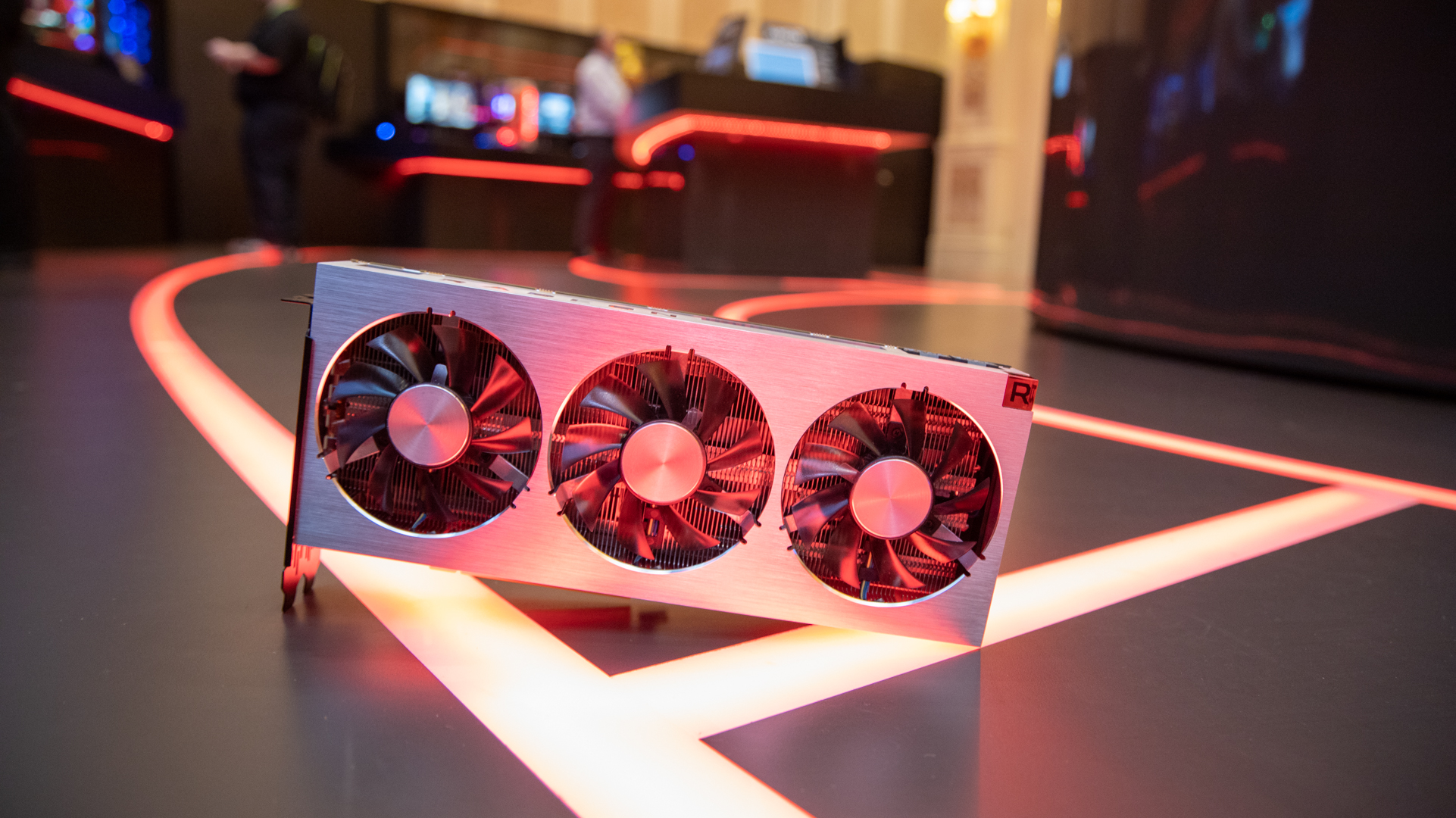AMD Big Navi might still be faster than the RTX 3080
Leaked specs suggest it will boast Nvidia-rivaling hardware

Sign up for breaking news, reviews, opinion, top tech deals, and more.
You are now subscribed
Your newsletter sign-up was successful
We’re just weeks away from the launch of AMD’s RDNA 2 GPUs, but a firmware listing may have prematurely outed the specs for the the company’s highly-anticipated Big Navi cards.
An eagle-eyed Redditor found a listing in the new ROCm (Radeon Open Compute) firmware that reveals some of the specs for the so-called Sienna Cichlid GPU - otherwise known Navi 21 or Big Navi - which will arrive as the flagship of the RX 6000 series
The listing hints that the GPU will feature 80 compute units (CUs) and a 256-bit memory bus. If each Compute Unit (CU) in AMD's RDNA 2 architecture still equates to 64 Stream Processors (SPs), that means Big Navi will 5,120 SPs.
- There's a whole world of computing components out there
- AMD vs Nvidia: which should be your next graphics card?
- These are the best graphics cards of 2020
If this is true, and if the GPU runs on TSMC's latest 7nm process, the flagship RDNA 2 processor could deliver Nvidia RTX 3080 levels of performance. After all, AMD has already promised that RDNA 2 will deliver 50% more performance per watt than its first generation RDNA architecture.
What's more, a recent rumor suggests the GPU will feature 16GB VRAM - more than the 10GB Nvidia has loaded onto its Ampere GPU.
The firmware update also references a graphics card codenamed Navy Flounder, believed to be Navi 22 or Navi 23. This mid-range GPU features 40 CUs and a 192-bit memory bus, according to the listing, which amounts to 2,560 SP.
This card will likely arrive as a replacement for the AMD RX 5700 XT, but with its newer RDNA 2 architecture, it will support real time ray tracing and be capable of gaming in 4K. We don’t have any details about performance just yet, but it could give Nvidia’s RTX 2070 a run for its money.
Sign up for breaking news, reviews, opinion, top tech deals, and more.
It won’t be long until we find out for sure, as AMD will announce these new GPUs under the RX 6000 series branding on October 28.

Carly Page is a Freelance journalist, copywriter and editor specialising in Consumer/B2B technology. She has written for a range of titles including Computer Shopper, Expert Reviews, IT Pro, the Metro, PC Pro, TechRadar and Tes.